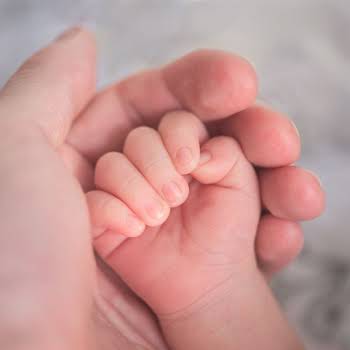By Jessie Collins
06th Jun 2017
06th Jun 2017
A follow up from last week’s griddle pan debacle, Jessie Collins looks at where we can empower ourselves to change the parenting dynamic, and also let other women off the hook.
It’s been seven days since I wrote about a dirty griddle pan, which became a gateway to discussing so much more. I didn’t really expect a piece about the parenting workload to get such a reaction (I’ve bumped into people I know only vaguely who’ve asked me if my partner ever cleaned that griddle pan – he did, but then he read my piece and went on housework strike). But I felt there was a second part to the discussion. A part that looked at our own ownership and dynamic in the parenting workload, and also, our own attitude towards other women about it.
Tin Dufu, a renowned voice in the women’s leadership movement in the US recently wrote Drop the Ball: Achieving More by Doing Less, a manifesto on how to deal with women’s perfection impulse when it comes to every part of their life, and to try to teach women to strategically let things go so we can focus on the stuff that really matters to us. She has, she says, ‘re-curated the standards,? standards which are complicated by the fact that they are attached to our value. ?You have to be there when your child takes it first step,? she told BBC’s Woman’s Hour, ?if you are not there, then you are not a good person.? The fact is though, most people can’t remember who was in the room when their child teetered on its first walk to physical independence. ?Reframe your mindset,? she suggests, ?if the floors are dirty it doesn’t mean that you are a bad wife, or a bad mother, its that you don’t have time to do them. You are not lowering your standards, it’s changing the definition altogether.?
This is the other part to the struggle within each parenting dynamic, mothers, as a collective, are still also trying to be all things to all people. Some have, what Dufu describes, as ?Home Control Disease? – which is also how many of us have been reared, and there is also the issue of judging and valuing ourselves and other women by how we parent, let alone whether we mother at all. This is something men don’t do nearly as much of. Nor are they valuing themselves by the cleanliness of their homes.
Dufu doesn’t excuse men from their part, but points out that if we grew up in society which had all these expectations of us, then so did men, so to expect them to be anything other then a product of that is unrealistic. Her solution with her husband was to generate a spreadsheet, detailing who took ownership for what job, the most important column she says is the ?no one? column at the end – the stuff they agreed that neither of them would get done – essentially the balls that were going to get dropped, which were also things they could reach out to others for. To many women, at the very least, this might just sound like more work (she says they update the spreadsheet every five to six months), if not downright utopian, but it is a definitive division of labour.
The key for Dufu is to expect less of ourselves and more of others. But I think we really need to look at the expectation of ourselves, including other women. I’ve worked for a few female CEO’s and it was only ever other women who questioned why their boss was working late and not picking up her kids. Men didn’t seem to give it much thought. We want other women and mothers to succeed but we are still expecting ourselves to be, as Dufu suggests, there for everything, and valuing ourselves and other women accordingly.
It is a value system that still defines women by whether they are mothers or not, and feels entitled to repeatedly ask women why they have or haven’t made those choices. I still feel like the same person after having children, just more stressed and a bit less sexy – that’s my current truth. That will probably change. I am glad I had children, but I don’t get satisfaction out of housework or batch cooking. I do get enormous reward from my work. I need it.
READ MORE: Why We’re All Guilty Of Competitive Parenting
We need to release ourselves from expectations that we can’t deliver on, to stop being defined on either side of motherhood, or by a dirty floor or a scaly fridge or a overflowing laundry basket. Mother, sister, daughter, friend – while holding ourselves accountable to unattainable levels, we also hold the key to freedom from it, and the treasure that lies beyond.






















